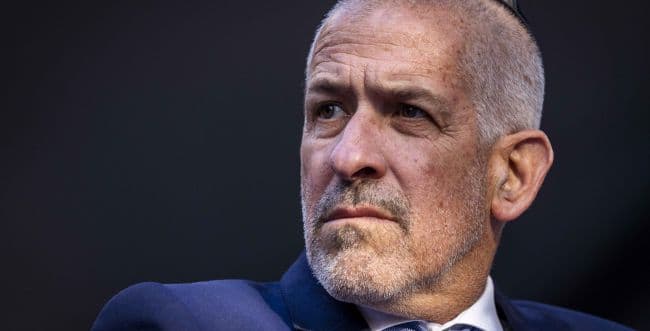The Security Systems Deny Earlier Reports
In the security establishment, they deny: "Devoid of any foundation"
In the security establishment, they denied the reports that the Chief of Staff, the Head of the Mossad, and the Head of the General Security Service are considering issuing a public statement about the situation in the security establishment. IDF Spokesperson: "The Chief of Staff is working to clarify his responsibility and authority vis-à-vis the political echelon"

In the security establishment, today (Sunday), they denied the reports that the Chief of Staff, Herzi Halevi, the Head of the Mossad, David Barnea, and the Head of the Shin Bet, Ronen Bar, are considering issuing a public statement to the public regarding the security situation in light of the threats of refusal. According to their claims, senior members of the security establishment are addressing the issue with the political echelon.
"The publication of reports about coordinated public statements among the heads of the security organizations is completely baseless," stated the IDF spokesperson. "The Chief of Staff is working to clarify his responsibilities and authority to the political echelon."
Simultaneously, in the General Security Service, they said, "The publication about a coordinated public move by the heads of the security organizations is incorrect. The Head of the General Security Service presents his positions and recommendations in closed security discussions and solely in front of the political echelon."
The head of the Mossad added and clarified in his response that "the news about the coordination of the security arms regarding the damage to the military's competence is not true, and does not reflect the position of the head of the Mossad, which he expresses in the security forums and in front of the political echelon and not in the media."
As mentioned, this morning News 12 reported that the Chief of Staff, the head of the Mossad and the head of the General Security Service are considering issuing a public statement to the public regarding the situation in the security system in the shadow of the threats of refusal. This is as part of the efforts of senior security officials to curb the possible damage to the military's competence.
According to the report, if the heads of the security establishment decide to make such statements, they will be published this month, and will not be in one joint statement - but in coordination between all the senior officials. Halevi, Barnea, and Bar are already coordinating with each other today, mainly in the actions that each takes in their organization to try and stop the crisis - which is affecting the IDF most, but is also hurting the other two organizations.
It was further reported that if the initiative were to be implemented, it would not have the approval of Prime Minister Binyamin Netanyahu. The consideration of the three senior officials comes in light of the refusal to convene the security-diplomatic cabinet and present ministers with comprehensive information regarding the military's readiness. This comes after a discussion held last week in which Netanyahu rejected the ministers' request for an update on the situation, claiming that "things leak afterwards."